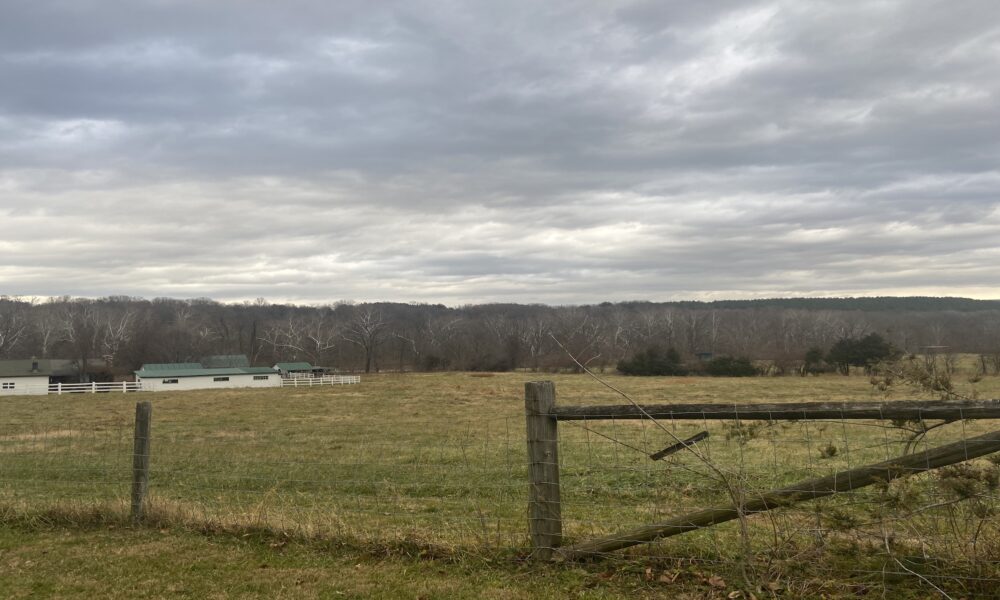I spent this break wandering through the Shenandoah National Park, irresponsibly lost at points. With root systems and fungi speaking deep under the earth and leafless canopies suspended overhead, the woods enveloped me on all sides. I felt more at peace than I had in months. In nature, I feel a kind of insignificance, like I am an infinitesimal part of a whole. Time somehow simultaneously speeds up and slows to a crawl.
I am not someone who just loses track of time. On the rare occasion that I do, feelings of guilt and panic often ensue. What have I let slip through the cracks? Why did I let myself waste so much time? My mind seeks data, control. One of the only things that can cut through the noise is being in nature. A switch flips, and suddenly, I am able to let go of the control I usually crave.
I am not alone in this experience. The science behind what makes nature so good for our mental health varies, but research affirms its profound impact. Even short periods in nature, like a walk through a park in the middle of a city, and visual depictions of nature can have a positive impact on one’s mental health and cognition. Furthermore, research links increased time in nature to greater respect for the natural world and our fellow earthlings.
One explanation for the impact that nature has on me, and others, is the biophilia hypothesis; based largely on qualitative data, it suggests that humans have an innate, genetic connection and draw to the natural world. I find this notion—a sort of vital link to nature which we often assume exists in other animals but not in ourselves—incredibly beautiful. It defies speciesism and unites us with the rest of the animal kingdom.
All of this begs the question: If nature helps and heals us, why do we tear it down? Humans have, by and large, let our relationship with nature become corrupt. We see the earth and our fellow inhabitants on it as tools at our disposal for expanding, uprooting, and containing. We take until there is nothing left to take, and refuse to stop a moment sooner.
My mind immediately goes to TC Energy’s Coastal GasLink (CGL) Pipeline currently being built through unceded Wet’suwet’en territory with strong backing from the Canadian government. This project is egregious on numerous grounds: It threatens Indigenous sovereignty, harms the land and surrounding ecosystems, and exposes the hypocrisy of the supposedly climate-conscious, liberal Canadian government all in one fell swoop.
There are plenty more examples of extractivism, a practice often intertwined with the brutal and ongoing legacies of colonialism. Indigenous communities have long stood against this practice, recognizing the importance of treating the land and animals with respect and dignity and staunchly advocating for environmental protection measures. Wet’suwet’en land defenders, for example, have set up checkpoints and are bravely fighting, despite a brutal, militarized response from the RCMP, to stave off the CGL pipeline. Others have taken to the courts and streets in protest.
Those who subscribe to the biophilia hypothesis, like renowned biologist Edward O. Wilson, have long argued for its role in conservation efforts. A renewed emphasis on the human-nature connection and the non-material, sustainable, well-being that we can derive from nature—even in an age rife with technological innovation—might help combat extractivist tendencies.
Admittedly, my relationship with nature is also a greedy one. I use it as a crutch to cope with my anxiety and still fall into the all-too-easy trap of taking it for granted at times. But I like to think I’ve fostered a symbiotic relationship with my corner of the world: It will soothe me, and I’ll respect and defend it.
I can’t imagine anyone standing amongst the trees as I did over break—feeling tiny, immensely content, and grateful—and not taking issue with the havoc we wreak on the natural world. So I argue for a relationship to the natural world that is founded in reciprocity and inspires respect, awe, and creativity, rather than neglect and abuse.









